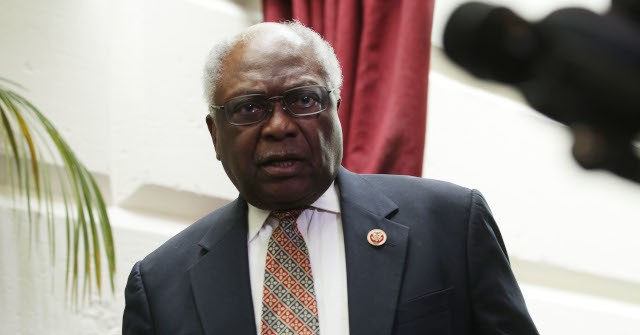On a recent episode of NewsNation’s “The Hill,” Representative James Clyburn (D-SC) passionately defended Hunter Biden’s legal troubles and subsequent pardon. He characterized Biden’s conviction as largely influenced by his familial ties to President Biden, suggesting that this connection subjectively magnified scrutiny against him. Clyburn argued that the criticism surrounding Hunter Biden often stems from what he sees as “unfair untruths,” emphasizing that such a case would likely have yielded a different outcome had it involved someone without that same influential background.
Clyburn highlighted the nature of the alleged crime, which involved inaccurately filling out a form when applying for a firearm. He pointed out that the specific incident involved a firearm that was ultimately disposed of and never used. According to Clyburn, the core issue was Biden’s denial of drug use on the application, and he claimed that this misrepresentation led to a felony conviction that seemed disproportionate given the circumstances. He underscored how societal biases tend to shape the legal outcomes of high-profile individuals, especially those with political connections.
In discussing the broader implications, Clyburn indicated that Biden’s experience raises critical points about equality and justice within the legal system. He challenged the audience to consider whether similar actions by individuals with lesser-known family ties or social status would lead to criminal charges at all. Clyburn insisted that if the situation had involved the sons of politicians like Sen. Michael Bennet (D-CO) or Rep. Greg Stanton (D-AZ), the response from authorities and the media would have been markedly different. He maintained that Hunter Biden’s punishment was a reflection not just of his actions but also of the stigma associated with his last name.
Clyburn’s comments underscore a recurring sentiment among some Democratic lawmakers who feel that Hunter Biden has been unfairly targeted. This notion has been a central theme in debates surrounding issues of privilege and accountability, where family connections sometimes afford individuals a degree of protection or lenience in the eyes of the law. Such discussions bring to light significant debates about privilege, justice, and the ideals of the American legal system, particularly how these principles are unevenly applied based on social status.
Moreover, Clyburn’s defense of Biden is indicative of a larger strategy by some Democrats to shift focus from individual cases to systemic issues within the justice system. The conversation about criminal justice reform often centers on the disparities faced by marginalized groups. By elevating Hunter Biden’s experience to this narrative, Clyburn aims to ignite discussions about fairness, equity, and potential reform within a system perceived as unjust.
In conclusion, Clyburn’s steadfast defense not only seeks to vindicate Hunter Biden but also to spotlight the complexities of privilege within the American legal system. The disparity in legal outcomes based on societal status raises questions about fairness and the expectation of justice for all. Clyburn’s assertions challenge listeners to rethink established narratives surrounding individual accountability, particularly when it involves public figures. As discussions persist regarding Biden’s legal standing and future implications, it is evident that these issues resonate beyond personal cases, striking at the heart of public concerns about justice in America.

